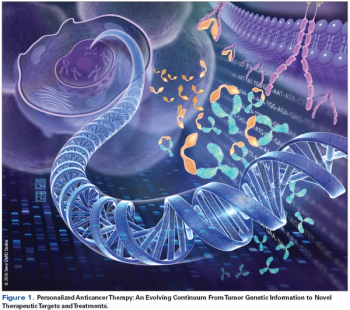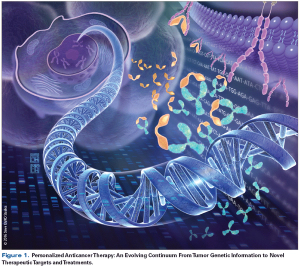
This review describes the achievements in therapeutic and molecular diagnostics, details evolving molecular platforms, and highlights the challenges for the translation of these developments to daily clinical practice.

Your AI-Trained Oncology Knowledge Connection!


This review describes the achievements in therapeutic and molecular diagnostics, details evolving molecular platforms, and highlights the challenges for the translation of these developments to daily clinical practice.

Angiogenesis is an important component of the pathogenesis of hematologic malignancies. A negative prognostic implication of increased angiogenesis has been established for acute and chronic myeloid and lymphocytic leukemias, myeloproliferative diseases, multiple myeloma, non-Hodgkin’s lymphoma (NHL), and hairy cell leukemia. An association between the return of increased marrow vascularity to normal levels and durability of response has been established in some of these diseases.

Drs. Enright and McGlave succinctly review the biology of chronic myelogenous leukemia (CML) and highlight the therapeutic role of allogeneic stem-cell transplantation. Two points, however, warrant further discussion. The first is that a regimen containing interferon-alfa (Intron A, Roferon-A) is optimal front-line therapy for the great majority of CML patients.[1] The second is that use of an interferon-alfa-based regimen prior to allogeneic stem-cell transplantation does not adversely affect post-transplant mortality, morbidity, or anti-CML efficacy.

Published: May 1st 2002 | Updated:

Published: April 16th 2016 | Updated:

Published: September 1st 1997 | Updated: